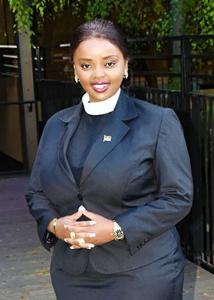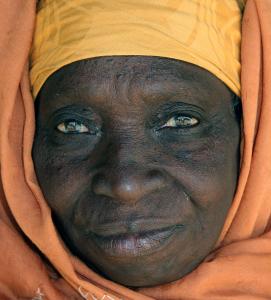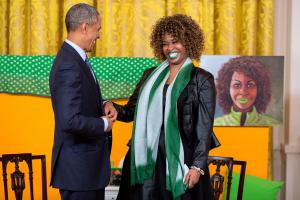 As if the COVID-19 pandemic were not enough for us, the public face of racism reared its ugliest head in Minneapolis, when a police officer placed his large knee on the neck of a citizen of the city, an action that led to the man’s death. George Floyd had tried to pass a counterfeit $20 bill, and for that act he died. It was cruel and senseless and monstrous beyond all telling, and though the policeman has been fired and indicted for what was surely a blatant crime, this event fired protests from coast to coast, unlike any seen since the Rodney King beating, or even since the assassination of Rev. Martin Luther King, Jr. in 1968. My own city, Los Angeles, is under curfew today, June 1, 2020, and some National Guard troops are on patrol after severe looting in Santa Monica last night resulted in much damage and over 400 arrests. It is a tense time, once more a time when the sharp divisions of American society have been illustrated yet again, and conversations about race have sprung up in nearly every corner of the country.
As if the COVID-19 pandemic were not enough for us, the public face of racism reared its ugliest head in Minneapolis, when a police officer placed his large knee on the neck of a citizen of the city, an action that led to the man’s death. George Floyd had tried to pass a counterfeit $20 bill, and for that act he died. It was cruel and senseless and monstrous beyond all telling, and though the policeman has been fired and indicted for what was surely a blatant crime, this event fired protests from coast to coast, unlike any seen since the Rodney King beating, or even since the assassination of Rev. Martin Luther King, Jr. in 1968. My own city, Los Angeles, is under curfew today, June 1, 2020, and some National Guard troops are on patrol after severe looting in Santa Monica last night resulted in much damage and over 400 arrests. It is a tense time, once more a time when the sharp divisions of American society have been illustrated yet again, and conversations about race have sprung up in nearly every corner of the country.
I am a 73-year-old white male, possessed of vast privilege, due both to my skin tone and to my comfortable style of living. My wife and I are on a fixed income, but that is a very salutary thing in a day when 40,000,000 Americans are out of work and the economy is in free fall. At least we receive our income every month, from Social Security, two pensions, and a sum from a managed account that we established upon our retirements. We are hardly wealthy, but we are certainly privileged. We know where our money this and next month will come from, making us among the more comfortable people in this fraught time. It is not intellectually difficult to imagine the enormous economic and social difficulties created by the virus. Nor is it impossible to identify, at least somewhat, with those who do wonder where the money will come from for rent and food and clothing and schooling. But I really have no way of connecting fully with an African-American who has been and is daily judged first and foremost by the color of her skin before any other characteristic has been evaluated. Nor can I begin to know what a long history of discrimination these citizens of our country have suffered for no reason at all save their blackness. I simply cannot know! And if I have ever suggested that I do, I have been lying.
In an earlier blog on this website, I have written of my own racism (see 8/13/2019). I said then and I repeat now that I say this about myself not to draw some piteous or supportive comments to diminish what I know to be true about me; I am assuredly a racist and have been so my entire life. I literally do not remember seeing an African-American person—though I certainly must have—until I was a senior in high school age 17. In my 3,000-student school, she was the first and only African-American student. What must she have felt and thought in 1963 when she first entered West High School in Phoenix? I only saw her; I do not remember her name and never spoke to her. My parents were deeply racially prejudiced, having been raised in all-while communities in Indiana and Iowa, then moving to Phoenix in 1953, walled off completely from all African-Americans and Latinos. I well remember my Dad railing at the TV when Martin Luther King, marching and finally dying for equality and simple freedoms, calling him Communist and troublemaker along with other names I will not repeat. I swallowed all of that with my breakfast, and my racism was cast.
I attended an Iowa college with very few African-American students, none of whom were my friends, though at least there I spoke to them and recognized their superb intellectual gifts, gifts that led them to wonderful later careers, including the first African- American Mississippi federal judge. Still, I was hardly cured of my racism by those few encounters. I then attended a seminary, again nearly all white, and went on to a graduate school, completely devoid of African-American students during my time there. I then pastored an all-white church in south Louisiana. It was not until I began teaching at Texas Wesleyan College in Ft. Worth that I had a significant number of African-American students, some 25% or so. That fact helped me open my eyes a bit, but my subtle and unsubtle racism persisted. I returned to my seminary and its faculty, and for 33 years, I taught, mainly again white students, but toward the end of my time increasing numbers of African-American and Latino/a students were in my classes.
Along the way, my wife went to seminary (I had her in class!), and after her graduation asked for a cross-racial appointment. She, like me, had recognized her racism, and, unlike me, strove to do something about it. For three years, she was a pastor of a large 2000-member African-American church; she and I were two of five white members, the other three being parts of mixed race marriages. I sang in the men’s chorus during those years, the only white member, and they welcomed me warmly. But still, I must say I remained racist.
I simply cannot meet any African-American person, and see past their skin tone. I know that is not a final marker of being a racist, but it does suggest that I cannot see them as people, but only as black people. And because I see their blackness first, I cannot avoid all the stereotypes I have living within me as I make the encounter. If three African-American men are standing on a corner, I immediately become tense, wondering if they are a threat to me in some way. If I listen to an African-American speaker in a conference, and they make a superb presentation, I silently am surprised, applauding in my mind their articulate and well-wrought address. These are horrible admissions, but they are all too true. My racism is deeply held and carefully taught and learned.
There is, as always, a tale from the Hebrew Bible that illustrates my problem all too glaringly. It is found in Ex.32, perhaps one of the tradition’s most finely wrought stories. Moses and Aaron are the antagonists, and it is the figure of Aaron who is my mirror in the matter of racism. The context is well known. The people of Israel have arrived at the mountain of Sinai after lengthy troubles in the desert. Moses leaves them to ascend the mountain to speak with YHWH, who is at the mountain’s peak, dwelling in cloud and fire. Before he leaves, Moses deputizes Aaron to deal with any concerns that may arise in his absence. He has barely made the first turn around the bend of the hill, when the people demand from Aaron a “god that will go before us,” because Moses has clearly left them in the lurch, alone and terrified at the base of Sinai.
Aaron quickly obliges them and carefully crafts a molten calf, before which the people proceed to dance, sing, and perform unspeakable acts with obvious sexual overtones. While Moses and YHWH chat, YHWH demands that Moses go back down the mountain to deal with these recalcitrant fools, who have substituted a calf for YHWH, and must be taught the terrible error they have made and the punishments that will ensue. After Moses has shattered the sacred tablets of YHWH in a fit of rage, he then confronts Aaron who plainly has had something to do with this disaster. Here the text gets to the nub of the problem. “Moses said to Aaron, ‘What did this people do to you that you brought on them a great sin?’ And Aaron replied, ‘Don’t get angry, my lord, you know the people; they are just evil” (Ex.32:21-22)! The latter part of Aaron’s response may more literally be translated, “The people are, even they, in evil.” They swim in evil; they dwell in evil. They are in fact plain evil!
For Aaron, now trying to weasel out of his deep involvements in the creation of the calf, he immediately resorts to the argument long used by all racists, by all those who attempt to make others inferior and dangerous. “You know how they are; just bad! What can one expect?” They are lazy, and demanding, and shiftless, and weak. All these characteristics I heard from my father about African-Americans, and I internalized them. Even after I discovered that they were all lies, all generalizations without foundation in reality, I still harbored them in my spirit, making my racism sometimes hidden but never vanquishing it for a moment. Aaron claimed Israel’s people are just no good, thus raising himself above them and forcing them to become second or third-class in his eyes, and, he hopes, in the eyes of Moses. I, like Aaron, have prejudged all “those people” before I even encounter them, before I even engage them.
Fortunately, Moses is having none of this foolishness from Aaron. Instead, he heads back up the mountain to attempt to, as he puts it, “Make atonement for your sin” (Ex.32:30). Literally, he says he will try to “cover over” their sin, hide it, ask God to in effect blot it out. Rather than accuse and brand the people, Moses seeks to save them, attempts to treat them as persons like himself, in need of God’s radical forgiveness and grace. Moses sees the people of Israel as his people; I need to see and experience my African-American brothers and sisters in the same way, as people of the same country, as citizens striving for peace and justice, as human beings asking for equity and fair play from me and from their society. My racism stands in the way of my full ability to do precisely that. I, like Paul, know all too well what I should do; I have learned the justice and righteousness of YHWH from the prophets of the Hebrew Bible and from Jesus. I just cannot do it. “Who will deliver me from this body of death,” the apostle cries? “Thanks be to God through our Lord Jesus Christ,” he answers, and finally that must be my answer, too, for I obviously cannot overcome my racism on my own. It has been with me my whole life.
(Images from Wikimedia Commons)











